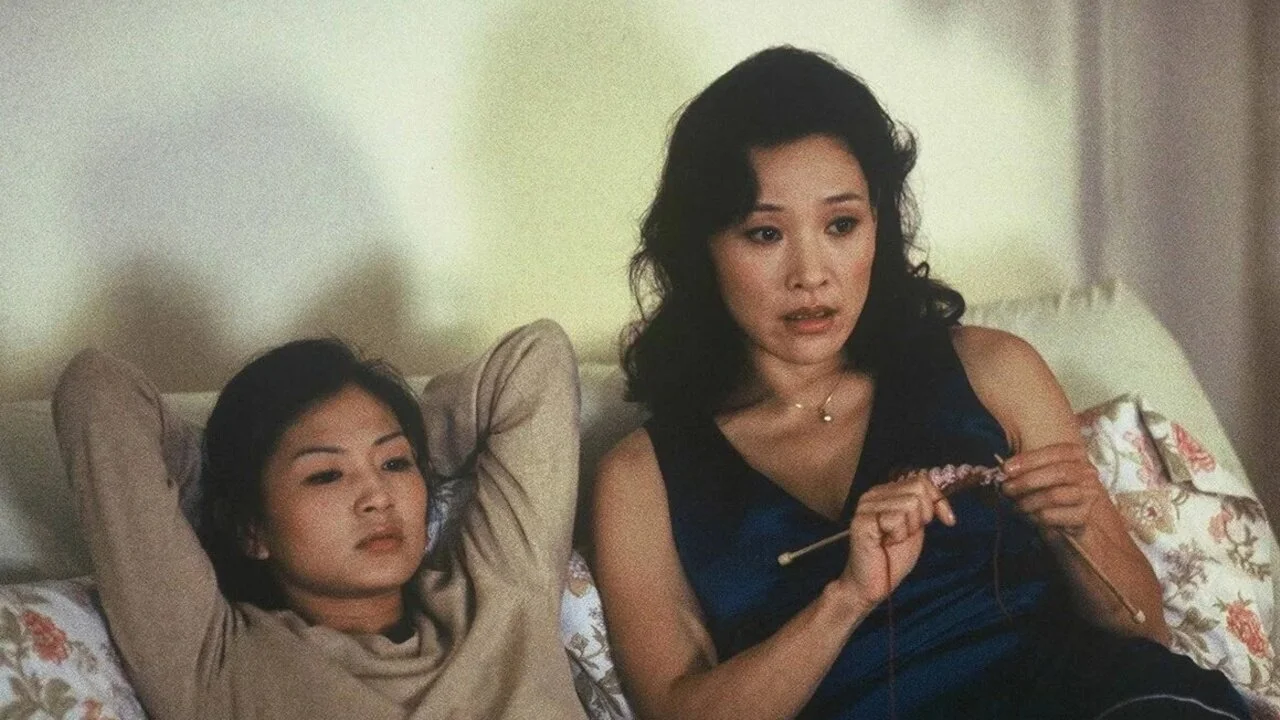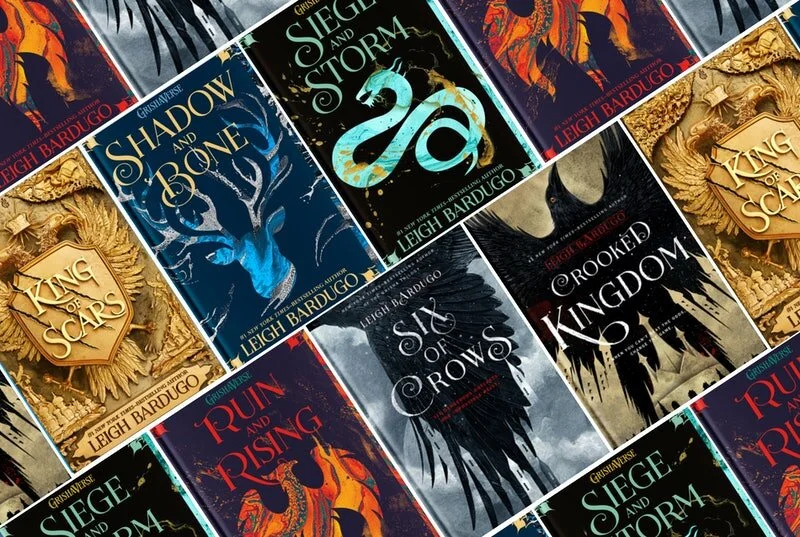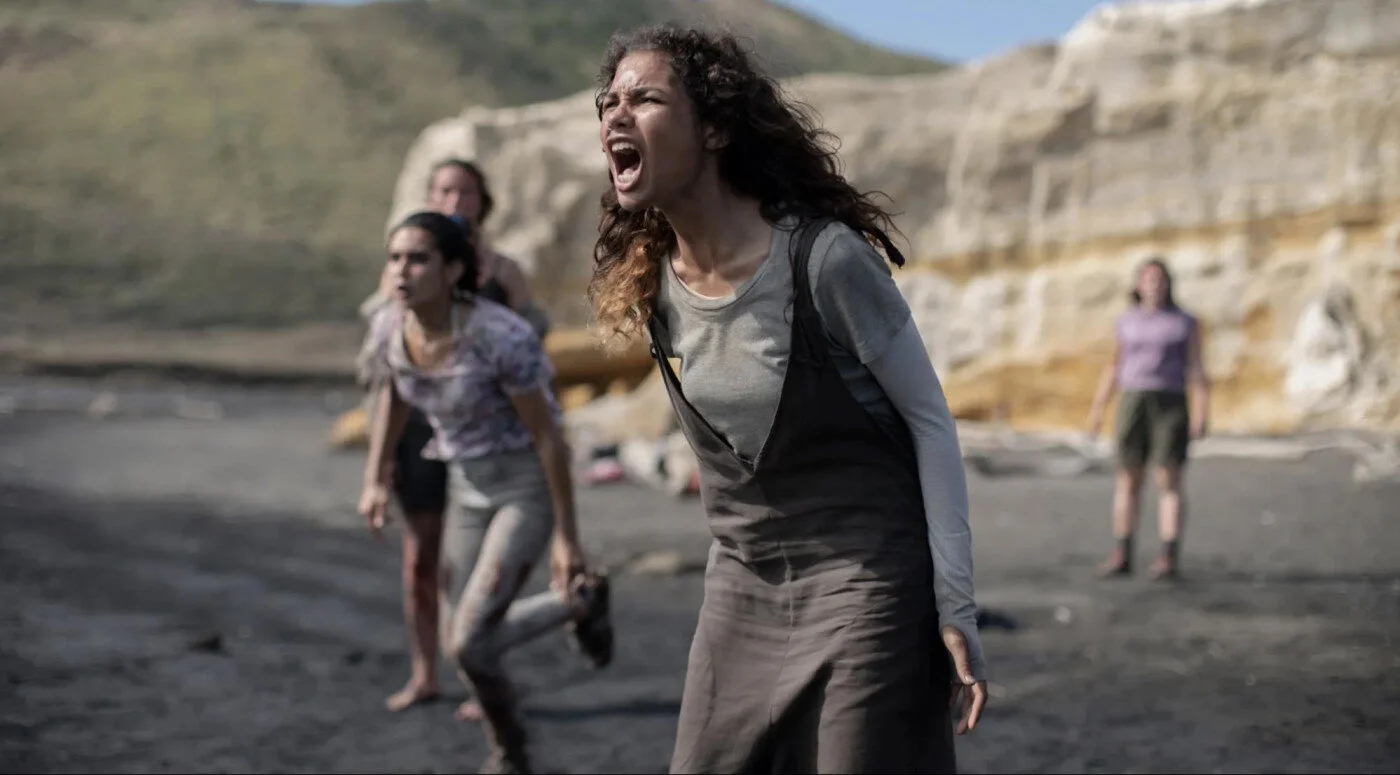Alice Wu’s "Saving Face": Exploring Identity through Comedy
*Light spoilers for Saving Face, but you should still go and watch it
Saving Face (2004) is a film directed by Alice Wu. The story follows Wil, a medical student who navigates relationships with her girlfriend, Vivian, and her unexpectedly pregnant mother, Hwei-Lan. The story takes place primarily in Queens’ Chinatown, with a large bulk of the script being written in Mandarin. The story resonated with me in a way I had never experienced before.
I love everything about it; from the relatable awkwardness of the main character Wil that reminds me of myself, to the single mother character who reminds me of my own Vietnamese mom, to the gossip which occurs at the hairdresser, to the food which is served. It’s a movie that made me feel seen, one which engulfs me like a warm cup of jasmine tea. Most of all, it’s a film that celebrates queer and Asian joy, while still acknowledging the hardships faced by these minority groups, especially with Wu’s own experience as a lesbian daughter of Taiwanese immigrants. There’s this misconception that in order for a story about marginalized groups to be taken seriously, the film itself must be serious. Saving Face as a romantic comedy shows that filmmakers can tell delightful stories about minorities, without having to resort to tragedy. By utilizing and subverting the romcom genre, Alice Wu creates a groundbreaking story which remains acclaimed nearly 20 years after its release.
In the story, Wil struggles to come out of the closet, meanwhile Lan refuses to disclose the father of her child out of shame, in order to, well, save face. The title alludes to the many faces we wear, shrouding our truth from our family and society in order to protect our notions of dignity. In her narrative, Wu thus examines the intersecting experience of being gay and East Asian; an intersection where our personal expression and our cultural expression are at odds. The impact of being queer and being a first generation immigrant is that these identities often feel at odds with each other. At times, it is hard to even know which face is the authentic one. The theme of identity is explored best through Wil, whose timidness is expressed not only narratively but visually. Trapped between two worlds, Wil often feels conflicted with herself. The film’s thoughtful composition closes in on Wil during her moments of vulnerability and steps away in order to immerse her in her surroundings. The visual language is also paralleled in Gao’s storyline, as Alice Wu creates an image system which connects the story of a mother and daughter; both of them hiding a secret that must eventually unfurl. Through her meaningful writing and visual language, the audience is immersed in the world of the characters and their struggles. It is a film which critiques the culture presented without degrading it. The best part of it, though, is still a romantic comedy; using humor and sentimentality to ultimately express the nuanced nature of identity.
I love Alice Wu’s writing because she writes from her own experiences and doesn’t attempt to fill that media empathy gap with unnecessary drama and flourish, as a result her stories feel authentic. Viewers must meet Wu in her own place, this is her story after all. In an interview with Them Magazine, Wu states: “I write from a very deeply emotional place... When you're writing, you're really building a new world, it's like a new physical world, a new emotional world, and what you want to do is give yourself the freedom to really own that world.” Wu’s empathy and honesty creates her resonant stories.
Growing up as an Asian lesbian, I was resigned to seeing my own race and sexuality constantly dehumanized on American film and television. In popular media, there is a misconception that for the character to be relatable, they must undergo suffering. In her Youtube video “Does the Media Have an Obsession With Queer Pain?” Tee Noir calls to attention the tendency for LGBT+ characters in the media, especially queer characters of color, to experience tragedy more than their cisgender and heterosexual counterparts. “I found that with cishet characters, depth is often synonymous with things like the interesting way that the character views the world and how that affects their actions… and still be seen as deep. Whereas with queer characters, their depth is determined by how the perils of their sexuality affect all of those things and that sometimes leaves little regard for their full humanity because it may be seen as less dramatically compelling.” This same logic can be applied to stories about people of color, where they are rarely allowed to happily exist in the media. While an abundance of these stories do exist, they rarely reach the widespread acclaim of stories that capitalize on racial trauma. Look at how the overwhelming majority of Black stories which are nominated for Academy Awards are about Black suffering. What does this say about how the Academy views people of color?
Part of being “other” in society means that your stories are never told, or when they are told either your tragedy is exploited or you become a punchline. If the only representation you receive are stories of tragedy, that absolutely impacts the way you see yourself. In retrospect, the constant focus on the pain of LGBT+ people and people of color meant that I naturally assumed I was inevitably going to end up like these narratives. It made me feel incapable of love and incapable of even living. Which is why I think Saving Face is so profound is that it provides our main characters with the joy they deserve. Not every narrative on marginalized people has to focus on their suffering, in fact I think more should focus on happiness. Between gleeful kisses and shared meals, Alice Wu creates that world of joy and comfort. In doing so, she tells the youth watching the film that “yes, this can be you. You can experience this joy.” In a sense, that is deeply radical.











